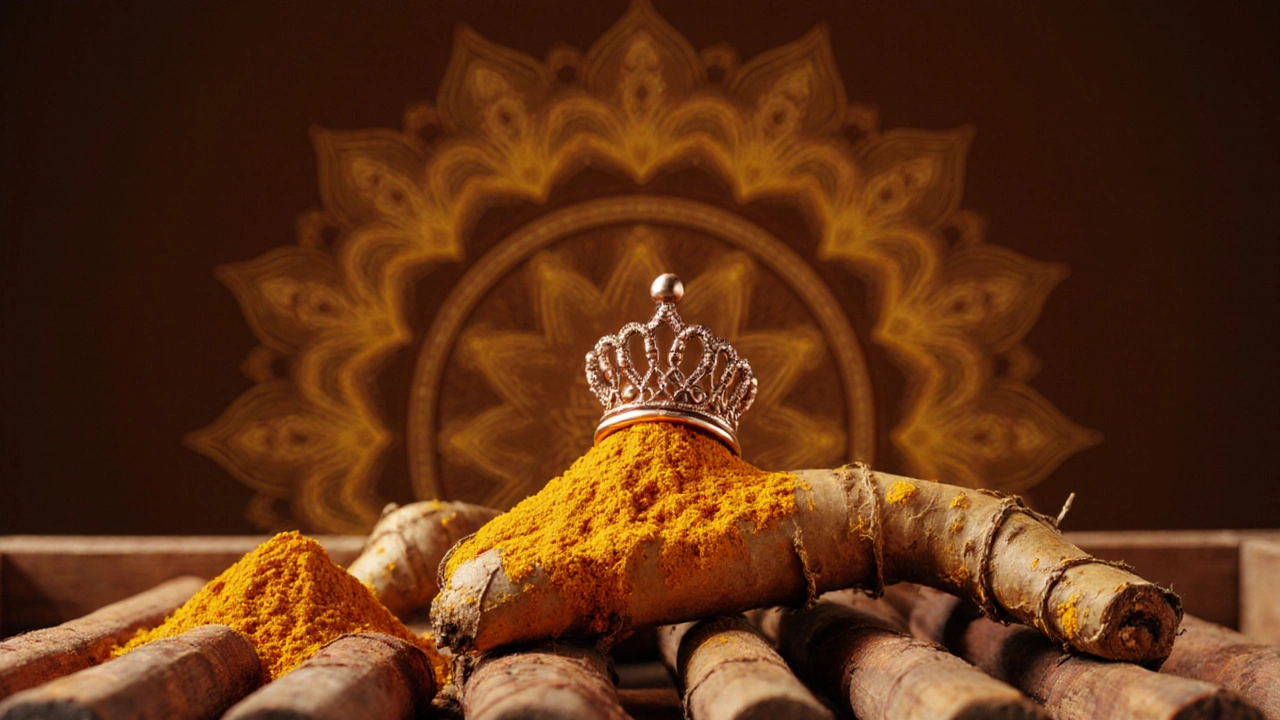Ayurveda: Practical Tips, Safe Herbs, and What You Need to Watch Out For
If you’ve ever wondered how Ayurveda fits into modern health, you’re not alone. Many people love the idea of natural balance, but they also worry about hidden dangers in herbs and supplements. This page gives you straight‑forward advice on using Ayurvedic practices safely, and points out the toxic pitfalls you should avoid.
Everyday Ayurvedic Practices You Can Start Today
First off, the simplest way to bring Ayurveda into daily life is through diet and routine. Swap out processed snacks for whole grains, fresh veggies, and spices like turmeric and cumin. Drink warm water with a dash of lemon each morning – it kick‑starts digestion without any fancy equipment. Adding an oil‑massage (Abhyanga) using sesame or coconut oil just before a shower can improve circulation and calm the mind.
These habits cost almost nothing and fit right into a regular schedule. The key is consistency; a little bit every day beats a big effort once a month. If you’re new to it, try one change at a time and track how you feel. Most people notice better sleep and steadier energy within a couple of weeks.
Herbs and Supplements: What’s Safe and What’s Not
Ayurvedic herbs like Ashwagandha, Triphala, and Guduchi are popular for stress relief and digestive health. However, not every batch on the market is pure. In India, some manufacturers add synthetic fillers or heavy metals to boost weight or shelf life. Look for products that have a USP or GMP seal, and check lab reports if possible. When a brand can’t provide a test report, it’s safer to skip it.
Another common mistake is mixing herbs with prescription meds. For example, taking high doses of Guggul alongside blood thinners can increase bleeding risk. Always tell your doctor about any Ayurvedic supplements you plan to use, especially if you have liver or kidney conditions. A quick chat can prevent serious side effects.
Remember, “natural” doesn’t always mean “harmless.” Some herbs are toxic in large amounts – Neem oil, for instance, can damage the liver if you consume too much. Stick to recommended doses and avoid self‑prescribing strong extracts without professional guidance.
Finally, think about the source. Herbs grown in polluted soil may contain pesticide residues or heavy metals. Buying from trusted farms that test soil quality reduces this risk. If you can, choose organic or certified‑organic options.
By following these simple checks, you get the benefits of Ayurvedic medicine while keeping safety front‑and‑center. Stay curious, stay informed, and enjoy the balance Ayurveda aims to bring to your life.
Ready to explore more? Browse our articles on specific herbs, detox drinks, and how Ayurveda can complement modern treatments without compromising safety.

Turmeric: The King of Healing Herbs Explained
Discover why turmeric is called the king of healing herbs, its science-backed benefits, safe usage tips, and how it compares with other top herbs.

80/20 Rule in Ayurveda: Unlocking Health and Balance Naturally
Explore how the 80/20 rule applies to Ayurveda, what it means for balanced health, daily routines, diet, and mindful living. Get practical tips you can use starting today.

How Long Does Ayurveda Take to Work? Realistic Timelines and Expectations
Curious about how long Ayurveda takes to show results? Discover who benefits fastest, timelines for common conditions, and tips to support real healing.

What Should I Eat First in the Morning Ayurveda: Simple Morning Food Rituals
Ever wondered what Ayurveda says about breakfast? This article gets into which foods to eat first thing in the morning for optimal digestion and energy, according to ancient Ayurvedic wisdom. You'll learn practical tips on morning food choices and easy step-by-step rituals. This isn't just theory—it comes packed with facts and reasons behind every recommendation. Let Ayurveda make your mornings stronger and calmer.

Can We Drink Coffee While Taking Ayurvedic Medicine? What You Need to Know
Ever wondered if your love for coffee clashes with Ayurvedic medicine? This article breaks down how coffee may interact with herbs, what Ayurveda has to say about caffeine, and when it's safe or risky to mix the two. Get tips from everyday habits and learn how timing, personal constitution, and lifestyle choices play a big role. Don’t miss practical advice to make sure your morning brew doesn’t ruin your wellness journey. Clear, actionable info—no fluff, all facts.

Why Do I Wake Up at 3am? Ayurveda Explains the Truth
Why do so many people find themselves wide awake at 3am? Ayurveda offers some interesting answers. This article looks at what might be going on in your body and mind, digs into ancient theories about sleep, and gives tips to help you get better rest. Expect practical advice rooted in ayurvedic wisdom. You'll see there's more to your nightly wake-up than just a full bladder or a strange dream.

How to Eat Properly According to Ayurveda: Simple Rules That Actually Work
This article breaks down how to eat properly according to Ayurveda, the ancient Indian system of health. You'll learn practical tips like meal timing, food combinations, and mindful eating that Ayurvedic experts actually follow. Discover how simple habits can make your meals easier to digest and help you feel better every day. Plus, find out which mistakes most people make and how to avoid them. Everything is explained in a way that's easy to understand and apply, even if you're totally new to Ayurveda.

The Ayurvedic First 40 Days: A New Mom's Essential Guide
Ayurveda offers a unique approach to postpartum care, focusing on the first 40 days after childbirth. This period is crucial for mothers to heal, rejuvenate, and bond with their newborns. The age-old practice involves specific diet plans, herbal remedies, and lifestyle changes to ensure the well-being of both mother and baby. Understanding these principles can help new moms navigate the journey of recovery and adaptation to motherhood.

What Should Vata Avoid? Mastering Balance with Ayurvedic Wisdom
Vata, one of the three doshas in Ayurveda, is all about movement and change but can get easily thrown off balance. To manage Vata, it's crucial to steer clear of certain foods and habits that exacerbate its airy nature. This article sheds light on what Vata types should avoid to maintain harmony and well-being. Learn practical tips to keep your mind and body grounded.

Ayurveda's Take on Foods You Shouldn't Combine
Ayurveda, an ancient Indian system of medicine, emphasizes the importance of food combinations for optimal health. Certain food pairings can affect digestion and lead to imbalances in the body. This article explores key food combinations that are best avoided according to Ayurveda, providing practical dietary tips for better digestion and well-being.

Natural Hair Regrowth with Ayurveda: Fact or Fiction?
Ayurveda, an ancient Indian system of medicine, offers insights into hair health and regrowth through natural remedies. With increasing interest in herbal solutions, this article explores whether Ayurveda can indeed bring back hair growth. We delve into traditional practices like herbal oils, dietary changes, and stress management techniques. Learn how these practices may influence hair rejuvenation. Discover both anecdotal and researched perspectives on the potential of Ayurveda for hair care.

Identifying Inflammatory Foods in Ayurvedic Practices
In Ayurveda, inflammation is often viewed as an imbalance of the doshas, which can be triggered by certain foods. This ancient system of medicine identifies foods that can exacerbate inflammation and disturb the body's equilibrium. Understanding the role of different foods in Ayurvedic practices can help one make conscious dietary choices. The article explores inflammatory agents in modern diets and offers guidance for balanced eating.

Can You Reverse Knee Stiffness? Find Out Now!
Apr, 4 2025

What’s the Best Herbal Health Supplement?
Apr, 6 2025

How Soon Can You Do IVF After Having a Baby?
Mar, 20 2025

